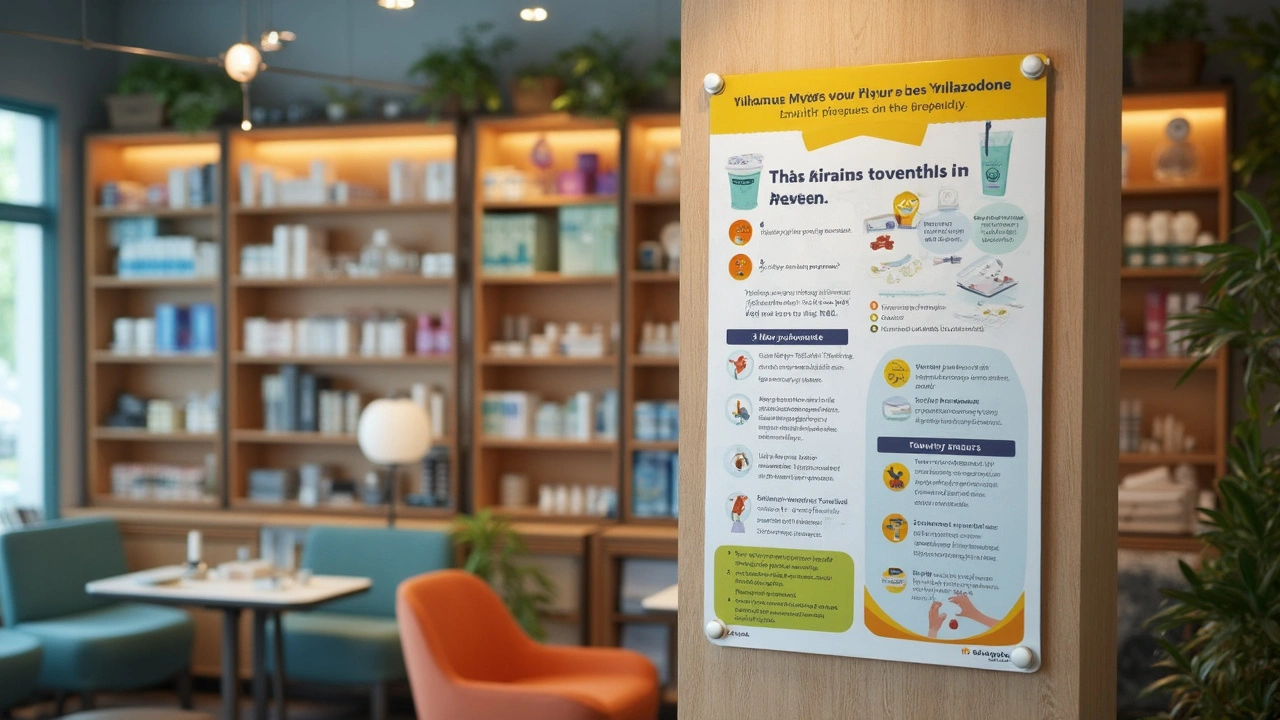This article delves into the common myths surrounding vilazodone, an antidepressant medication often misunderstood. We aim to clear up confusion and provide straightforward facts for anyone considering or currently using this drug. From side effects to how it works, we'll tackle misconceptions head-on. Whether you're a patient or just curious, this guide is all about offering clarity and practical advice. Let’s make sense of this medication, free from hype and hearsay.
Medication Myths: Facts, Truths, and Common Misconceptions
Ever heard someone say, “You should never take antibiotics for a cold” or “All generics are lower quality”? Those statements sound believable, but they often mix truth with hype. Let’s cut through the noise and give you straight‑up answers you can actually use when talking to your doctor or pharmacist.
Myth #1 – “If a drug is natural, it’s automatically safe”
People love the natural label, assuming it means harmless. In reality, many plant‑derived compounds can be toxic. Think about St. John’s wort – it’s sold over the counter, yet it can trigger serious interactions with antidepressants, birth‑control pills, and blood thinners. The safety of a medication depends on dose, how it’s processed in the body, and individual health factors, not on whether it’s synthetic or herbal.
Myth #2 – “If I feel better, I can stop my prescription early”
Feeling better is a good sign, but stopping a drug too soon can let an infection bounce back or a chronic condition flare up. For antibiotics, the full course wipes out hidden bacteria that might cause resistance. For chronic meds like blood pressure pills, the body needs a steady level to stay stable. Always follow the prescribed length unless your doctor tells you otherwise.
Another frequent misconception is that “all generics are cheap copies with lower quality.” FDA‑approved generics must meet the same strict standards for identity, strength, purity, and stability as brand‑name drugs. The only real differences are inactive ingredients, which can affect people with allergies but not the medication’s core effectiveness.
Many folks also think “once a medication is on the market, it’s forever safe.” Drugs are continuously monitored, and new safety data can emerge years later. For example, certain pain relievers were pulled from the market after rare but serious side effects were discovered. Staying updated means reading the label, listening to your pharmacist, and asking your doctor about any new warnings.
Finally, there’s the belief that “you can’t get addicted to prescription pills if you take them as prescribed.” Even when used correctly, some meds—especially opioids, benzodiazepines, and stimulants—can cause physical dependence. The key is close monitoring, using the lowest effective dose, and never sharing your meds with anyone else.
So, how can you protect yourself from these myths? First, ask questions. If something sounds too good to be true, it probably is. Second, use reliable sources – FDA updates, peer‑reviewed articles, or a trusted healthcare professional. Third, keep a personal medication list and share it with every provider you see.
Bottom line: Medications are powerful tools, but they’re not magic. Understanding the real facts behind common myths helps you make smarter choices, avoid unnecessary risks, and get the most benefit from your treatment plan.

